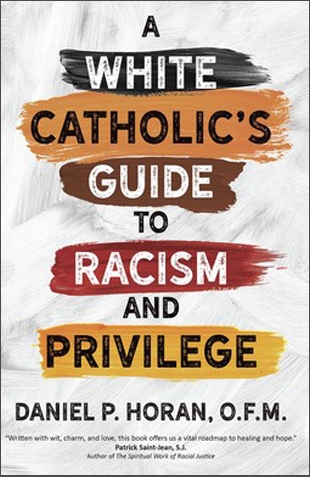This important book's author — a Roman Catholic priest, professor, and Franciscan friar — has quickly become one of our most prolific and articulate white theologians addressing spiritual needs and challenges in the world today. We reviewed his first book, Dating God: Live and Love in the Way of St. Francis, back in 2012.
This new book is timely, to state the obvious. Horan begins with a quote from Black novelist Toni Morrison that belies the straightforward approach of what’s to come: “White people have a very, very serious problem, and they should start thinking about what they can do about it.” Indeed. If you are white and don’t yet see that the United States is a white supremacist society and that white people are “given all sorts of unearned advantages,” to use Horan’s phrases, then you should read this book.
Horan asks and answers “Why me?” with this: “Each and every one of us white folks share the responsibility to work for racial justice and to overcome the pervasiveness of white supremacy in our society and faith communities. Not all of us are called to do the same thing, but each of us is called to do something.” Asking “Why now?” he explains that the murder of George Floyd by Minneapolis police officer Derek Chauvin made him aware that his previous anti-racism work had been insufficient.
Subsequent chapters include (1) “What Is Racism and How Do We Talk about it?” (2) “What Does It Mean to Be White?” (3) “Racism Is a White Problem,” and (4) “Systems, Structure, and Institutions.” This is a book that should and will surely be used in lively parish book groups who are seeking to uncover and fix white assumptions and complicity in the years ahead. Chapter 5, “What Does the Catholic Church Teach about Racism,” will appeal primarily to Catholic readers. The book does sometimes use language such as “we white Catholics” and “Catholic moral theology,” but the work could be easily adapted for any Christian.
We appreciated most of all chapter 6, “How to Be More of an Ally and Less of a Problem.” There Horan offers mistakes he has made and how he has tried to become a better ally. For example, he writes: “So subtle are some of these behaviors that they can be very difficult at times to recognize, especially if you, like me, are a beneficiary of a racist system that shields you from seeing actions that you might not ever consider transgressive or rude as nevertheless demeaning and harmful to people of color.”
